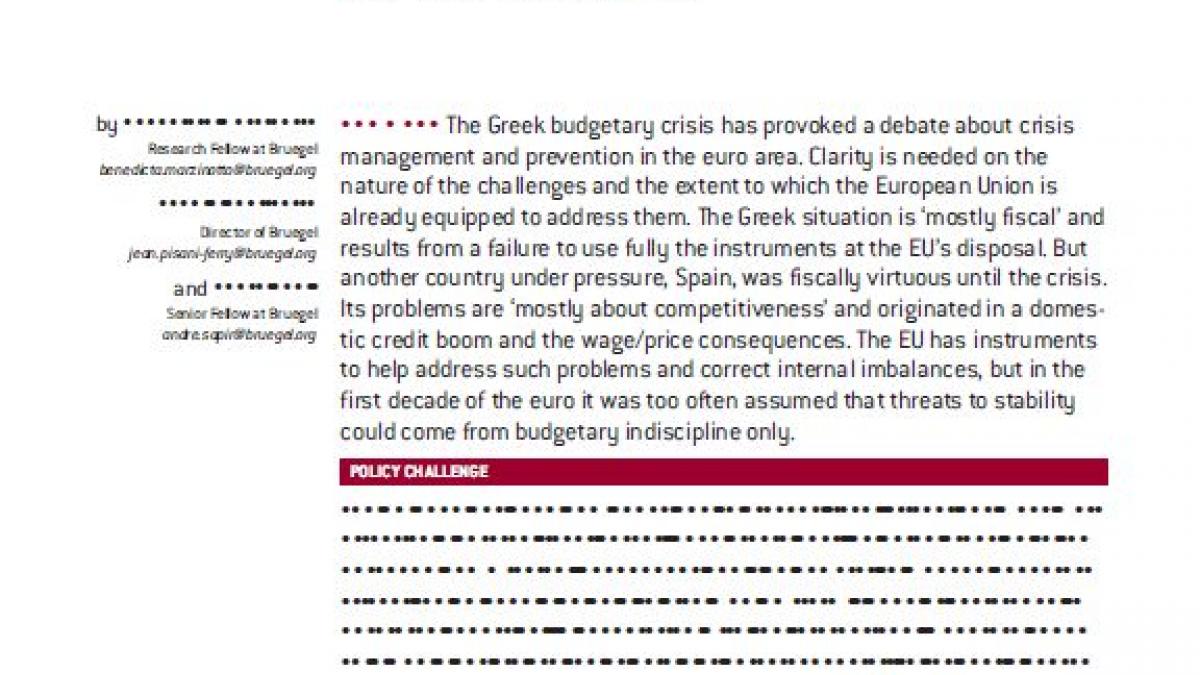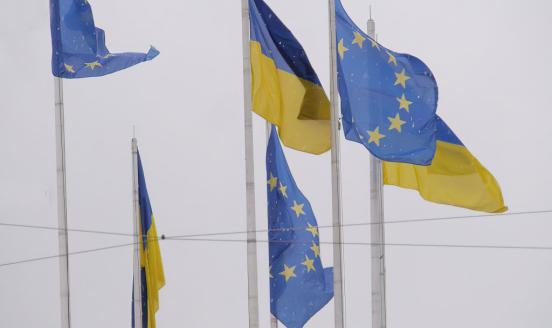Two crises, two responses

The crisis in Greece presents an extraordinary test for the euro, but also an opportunity to strengthen, and apply more diligently, existing procedures governing the economic and monetary Union. This Policy Brief authored by Bruegel Director Jean Pisani-Ferry, Senior Fellow André Sapir and Resident Fellow Benedicta Marzinotto emphasises the need for a more nuanced understanding of the different kinds of crises affecting euro members.
Using Spain and Greece as examples, this paper makes policy recommendations for both scenarios. It explains how budgetary surveillance can be strengthened to prevent crises. It says the scope of Article 143 of the Lisbon Treaty should be extended and a clear and predictable conditional assistance regime put in place for effective crises management in the euro area.



